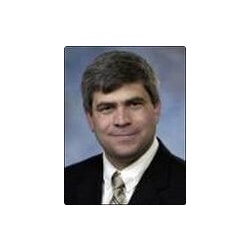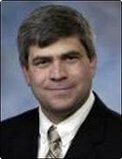
Dr. David Heine discusses EMRs (electronic medical records)
The debate over health care is a central part of this year's presidential campaign. But very quietly, away from the spotlight, a Decorah medical clinic is showing what can be done in achieving a key goal of the Affordable Care Act—getting insurance companies and health care providers to switch to using electronic medical records. According to the legislation, "Using electronic health records will reduce paperwork and administrative burdens, cut costs, reduce medical errors and, most importantly, improve the quality of care."
Dr. David Heine of the Family Care Clinic in Decorah says when his clinic opened in 2008, it started with the electronic medical records. "We would never go back (to paper records)," he says. Heine calls the use of the electronic medical records a win for the health care provider and a win for the patient.
For instance, he says health care providers at his clinic appreciate having a patient's complete medical history available instantly. He says industry studies have shown that up to 20 percent of the medical histories that are taken by doctors are done because the previous paperwork can't be found. Dr. Heine says "the information is always there" with electronic medical records. He's never had to wait for paper records to arrive and, since the records are stored off-site in a computer server "cloud," the electronic records have never been "down."
Family Care Clinic's use of electronic medical records has been so notable that Family Care Clinic representatives were invited to Washington, D.C. recently for a national conference on EMRs. Around 80 health care providers were invited. Family Care Clinic was one of just three small clinics invited to the conference.
Dr. Heine predicts more and more health care providers will begin using the EMRs soon. He points to places like Northeast Iowa Community College that are training people in the technology and the development of a State of Iowa "Health Interface" that provides a software program to allow health care providers using different software systems to still communicate with one another.
He admits that some doctors are "fearful" of the new technology. But he says clinics and hospitals need to make the switch. He asks how the public would react if grocery stores or banks still rung up every transaction using old cash registers. Those businesses have had to change to use the new technology—and Dr. Heine predicts the same thing will happen with health care providers.
Site designed and maintained by Iroc Web Design Services©.
Your Small Business Web Design Solutions.™


